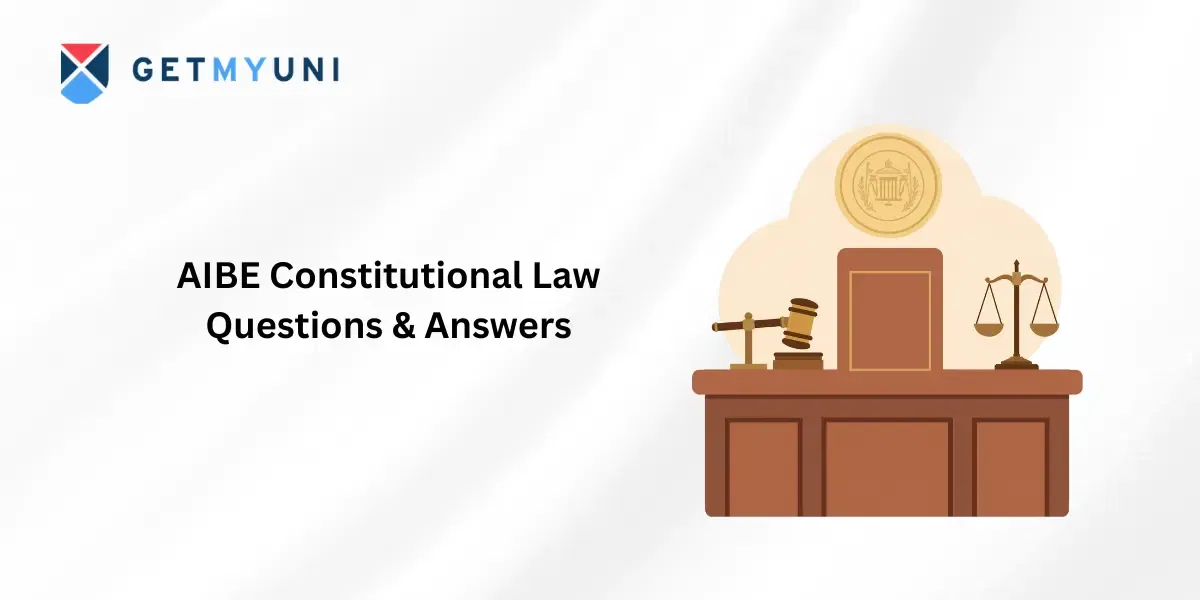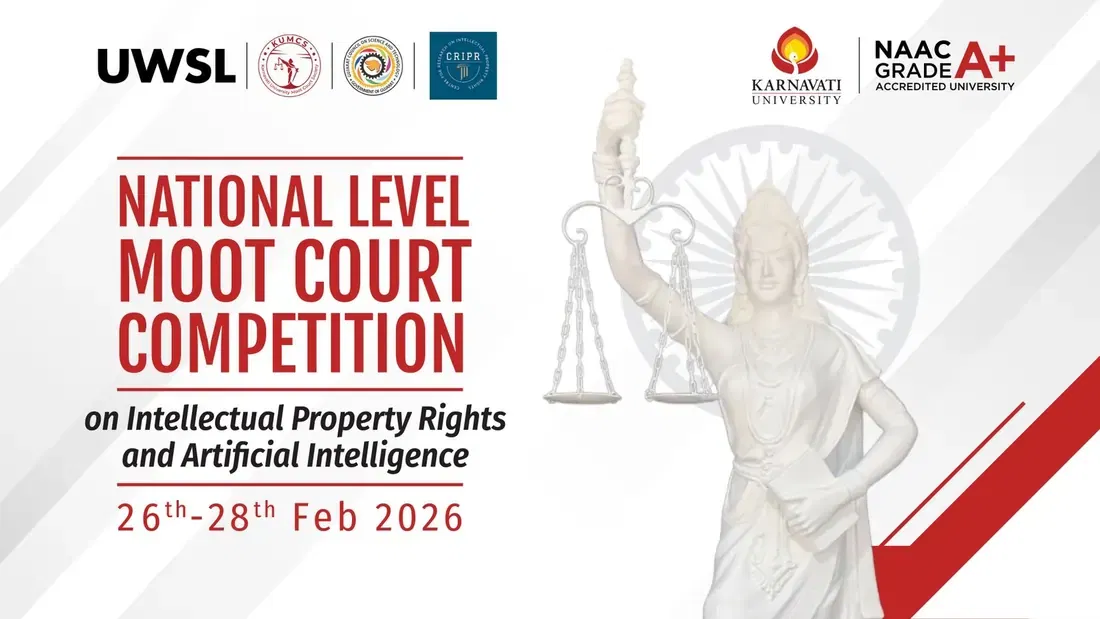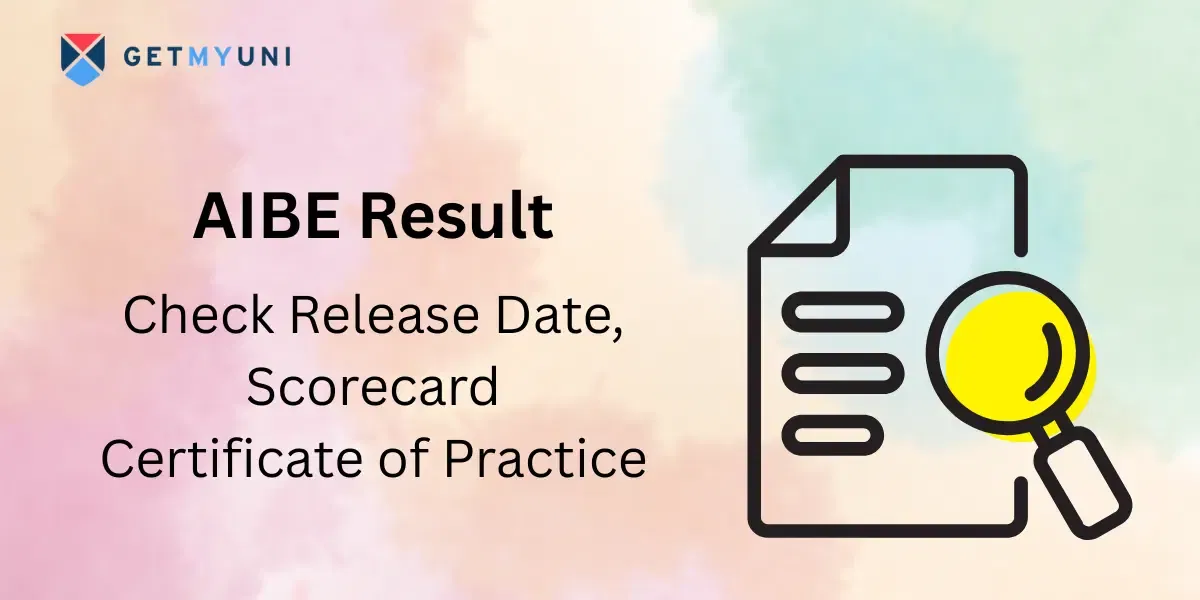Law Courses: Eligibility, Admission, Syllabus, Placements
Law is one of the most sought-after subjects which deal with the study of law, policies, by-laws, and the constitution of the country. The study of law imparts students with knowledge of various sections of the law, litigation and other legal courses. The law courses are job-oriented with the courses offered at Undergraduate, Postgraduate and Doctorate levels. There are law courses after the 12th such as diplomas and certificates which offer candidates basic knowledge regarding the subject.
Table of Contents
- Law Course List
- Eligibility For Law Courses
- Admission
- Entrance Exam
- Types Of Law Courses
- Syllabus And Subjects
- Top 10 Law Colleges In India
- Jobs And Salaries
- Scope Of Law Course In India
- Top Recruiters
- Law Qualifications
Law Courses List
Numerous different legal degrees are awarded in the nation, including diplomas, bachelor's degrees, master's degrees, and even PhDs. Some of the top law schools offer various additional legal courses and certifications, including Jamia Millia Islamia, the National Law School of the Indian University, and others. Any applicant choosing to study for a law course should be aware that the majority of them are entrance exam-based. The law course duration is from 3 years to 5 years depending on the nature of the course. The country's law courses list is divided into the following categories so that candidates can select from a variety of law course details:
- Undergraduate Courses
- Postgraduate Courses
- Diploma / PG Diploma Courses
- Certification Courses
- Doctorate Courses
Undergraduate Law Courses
The UG law course is a full-time course for a span of three years to four years with integrated law courses leading up to five years. LLB has the most popularity among students pursuing law. There are also integrated law courses such as BBA LLB, B.Sc LLB,B.com LLB for candidates looking for a specific field in law. The undergraduate law courses are
- LLB
- BBA + LLB
- BA + LLB
- BA + LLB (Hons)
- B.Sc + LLB
- B.Com + LLB
- B.Com + LLB (Hons)
- B.Sc + LLB (Hons)
- LLB Hons
- LLB Intellectual Property Rights
- BSL + LLB
- B.Tech + LLB
- Bachelor of Legislative Law
- Bachelor of Legislative Law (Hons)
Postgraduate Law Courses
Law course after graduation are postgraduate. Law courses duration is for 2 years. The PG law courses can be pursued with other disciplines such as MA, and M.Sc as integrated courses. The pg law courses list is:
- LLM
- LLM International Law
- LLM Mercantile Law
- LLM Labour Law
- LLM Human Rights
- LLM Corporate Law
- LLM Business Law
- LLM Environmental Law
- LLM Energy Law
- LLM Criminal Law
- LLM Master of Law
- LLM Criminal law and Criminology
- LLM Intellectual Property Rights
- LLM Anti Terrorism
- LLM Criminal Justice
- LLM Labour Law and Administrative Law
- LLM Hons
Diploma / PG Diploma Law Courses
Candidates have access to a variety of courses that can be taken to earn diplomas after high school graduation. After finishing the 12th, the applicant may enroll in various legal courses. Post-graduate law diploma courses are an option for those who already hold a bachelor's degree and are looking for quick, career-focused courses. The diploma law courses after 12th are:
- Diploma in Taxation Law
- Diploma in Labour Laws
- Diploma in Cyber Law
- Diploma in Laws and Labour Welfare
- PGDCL
- PGDBL
- PG Diploma in IP Rights
- PG Diploma in HRL
- PG Diploma In Law (General)
- PG Diploma in Cyber Law
- PG Diploma in Labour Laws
- PG Diploma in Human Rights
Certification Law Courses
There are also law certification courses available. In the areas of consumer law, Labour law, human welfare law, and other related fields, there are numerous certifications available. These short courses cover the fundamentals for the students. The certification courses are also law courses for working professionals. There are only 3 colleges in the nation that offer Law Certificate Courses, they are NLU, Delhi, NUJS, Kolkata and SLS, Pune. The Law courses for working professionals are these certification courses. Here are a few specializations one can get certified in. It is divided into online and offline courses:
Online Courses:
- Contract Law from Trust to Promise to Contract
- Corporate Law
- Certificate in International Humanitarian Law
- Certificate in Cyber Law
- Certificate in Law of Financial Services
- CS50's Computer Science for Lawyers
- Introduction to Intellectual Property and Intangible Economy
- Introduction to Trademarks and Copyright
- Advanced Constitutional Law-1
- Cybersecurity Law & Policy
- Media Law
- International Human Rights Law
- International Law
- International Women's Health and Human Rights
Offline Courses:
- Media Law
- International Human Rights Law
- International Law
- Corporate Law
- International Women's Health and Human Rights
- Cybersecurity Law & Policy
- International Humanitarian Law
Doctorate Law Courses
The doctorate degree is purely based on the research work the candidate has done in the field of their specialization. Law graduates have the option of working in many fields to perform research work on the basis of their choice of specialization. They can even combine courses such as BA, BBA & B.Sc to perform research. Some of the PhD choices are
- PhD in Law
- PhD in Criminal Law
- PhD in Cyber Law
- PhD in Environmental Law
- PhD in Corporate Law
- PhD in Labour Law
- PhD in Air and Space Law
- PhD in Maritime Law
- PhD in Consumer Law
- PhD in Civil Law
- PhD in Media Law
- PhD in Competition Law
- PhD in Intellectual Property Law
- PhD in Real Estate Law
- PhD in Business Law
Eligibility For Law Courses
Law course eligibility is based on the entrance exam the candidate has to sit in order to enrol in the college of their choice. The eligibility for law courses in India is candidates must clear all the eligibility requirements set by the council. Let's take a quick look at the eligibility criteria according to degrees:
- Diploma: For a candidate wishing to pursue a diploma, they can either enrol in the law course after the 12th. They must secure 45% in the 12th graduate to be qualified to pursue Diploma courses in law.
- Certificate: The certificate courses have the same eligibility as a diploma. The candidate should’ve passed at least 12th grade with a 45% minimum aggregate. For working professionals too, the criteria are the same.
- Undergraduate: Students must sit for entrance examinations conducted by the centre, state or university to qualify for Law. Apart from this, they should meet the qualifying requirements set by the universities and colleges.
- Postgraduate: A candidate wishing for a postgraduate program must have performed well in the undergraduate course. They must also qualify for the entrance examination to be able to pursue a PG course.
- Doctorate: Students must qualify for the national entrance examination to be able to sit for a PhD course. They also should be able to secure a minimum of 50% in their postgraduate course.
Law Courses Admission
Admission in law courses is based on either entrance exams or merit.
Candidates for the law degree may be asked by the universities they have chosen or chosen for them to submit their results from the relevant entrance exam boards. Students have access to both offline and online admissions applications.
Students must go to the colleges' official websites to learn more about the online application process. They would have to go in person to the college's admission office for offline methods.
Law Course Entrance Exam
The final merit list of applicants selected for admission to colleges is heavily influenced by entrance exams. Colleges use entrance exams as a screening tool to assess whether applicants are a good fit for the programme.
These tests are given at the college, state, and federal levels. Thus, before enrolling, students must conduct a thorough investigation of the appropriate exam.
The list of top tests for entry into different Indian law programmes is provided below according to their degree:
Postgraduate Entrance Exams:
Undergraduate Entrance Exam:
Integrated Law Entrance Exams:
Types Of Law Courses (Specializations)
Choosing a specific field can be difficult because law courses can cover a wide range of topics. The main objective of law courses is to familiarize students with laws, policies, and articles that impart them with the knowledge of legal actions. All law courses are regarded as lucrative fields for school graduates to study because candidates can anticipate finding a well-paying job in both the public and private sectors after graduation. Let's examine a few different types of law courses:
Corporate Law courses
Corporate law studies rights, relations and conduct of persons of an organization or companies and business. The study is focused on the laws and ethics that govern the business field of conglomerates and multinational firms. One can study the course as an Undergraduate course or pursue online certification or diploma of the course. Below is the duration and average fee for corporate law:
|
Course |
Average Fees (INR) |
Duration |
|
Certificate in Corporate Law |
15,000 PA |
6 months |
|
Diploma in Corporate Law |
20,000 PA |
1 year |
|
BBA LLB (Hons) in Corporate Law |
2 LPA |
5 years |
|
LLM in Corporate Law |
10 LPA |
2 years |
Cyber Law courses
Cyber Law courses focus on the study of cybercrime such as online stalking, cyberbullying, uploading pictures without consent, etc. The graduates of the course can work in various roles in various sectors such as IT, Police, Corporate houses and many more. Candidates who wish to pursue this as an undergraduate study must take it with integrated law courses as their specialization. Below is the duration and average fee for Cyber law:
|
Course |
Average Fees (INR) |
Duration |
|
Certificate in Cyber Law |
5000 - 10,000 PA |
6 months |
|
30,000 PA |
1 year |
|
|
PG Diploma in Cyber Law |
3 LPA |
2 years |
|
LLB Cyber Law |
2 LPA |
3 years |
Labour Law Courses
Labour law is the study of the rights of labourers, policies, and welfare that govern them in a working environment and to help them in legal action in case of infringement. The course can be pursued as a certification course for masters.
|
Course |
Average Fees (INR) |
Duration |
|
Certificate in Labour Law |
5000 - 10,000 PA |
6 months |
|
30,000 PA |
1 year |
|
|
PG Diploma in Labour Law |
3 LPA |
2 year |
|
LLM in Labour Law |
2 LPA |
2 years |
International Law Courses
The international law course is the study of international relations between sovereign states and the legal binding of international laws and policies that govern the relationship between the states. The course is offered as short-term courses and long-term courses in the country. The international law courses are incorporated into the LLB module.
|
Course |
Average Fees (INR) |
Duration |
|
Certificate in International Law |
5000 - 10,000 PA |
6 months |
|
PG Diploma in International Law |
2 LPA |
2 years |
|
BA in International Law |
2 LPA |
3 years |
|
10 LPA |
2 years |
Criminal Law Courses
The criminal law courses focus on the study of the judicial system, its statutes and limitations. The course divulges the aspect of finding the right way to protect the public from harmful and unlawful practices in the judicial system. It is one of the most pursued law courses in the country for an undergraduate degree.
|
Course |
Average Fees (INR) |
Duration |
|
Certificate in Criminal Law |
5000 - 10,000 PA |
6 months |
|
PG Diploma in Criminal Law |
2 LPA |
2 years |
|
LLB in Criminal Law |
2 LPA |
3 years |
|
LLM in Criminal Law |
10 LPA |
2 years |
Law Course Syllabus and Subjects
The study of laws, statutes, litigation, bylaws, legal action, and judiciary is the main focus of the course. The course covers a wide range of subjects, including law, international relations, and the judiciary.
The law course subjects and syllabus of the course will vary depending on the type, of course, the student wants to enrol in. For instance, a postgraduate course may cover a topic more thoroughly than a diploma or undergraduate course. The law course books provide valuable insight into the syllabus and subject matter of the course.
The following are some general topics that students studying law may learn about:
- Labour Law
- Labour law and Evidence
- Family Law
- Professional Law
- Jurisprudence
- Women and Law
- Environmental Law
- Property Law including The Transfer of Property Act
- Practical Training
Top Law Colleges In India
There are many law course colleges in India that offer many integrated law courses to specializations in many fields. The law course fees vary from private colleges to public colleges due to the nature of the structure. Here are some top law colleges in India that offer various law courses.
|
College |
Fees (INR) |
|
2.15 LPA |
|
|
1.39 LPA |
|
|
7.20 LPA |
|
|
1.8 LPA |
|
|
3.55 LPA |
|
|
2.44 LPA |
|
|
10,400 LPA |
|
|
3.15 LPA |
|
|
2.50 LPA |
|
|
4.19 LPA |
Law Courses Jobs and Salaries
Students who enroll in Law degree courses in India are exposed to a wide variety of career options. They work in the private sector as well as the public sector. The demands of the industry are taken into consideration when creating the curriculum. The following popular job roles are listed along with their typical salaries:
|
Job Role |
Average Salary (INR) |
|
Notary |
3.5 LPA |
|
Law Reporter |
4 LPA |
|
Government Lawyer |
8 LPA |
|
Legal Advisor |
8 LPA |
|
Junior Lawyer |
5 LPA |
|
Advocate |
10 LPA |
Scope of Law Course in India
Law is fundamental to daily life for the citizens of the nation. Because they will be exposed to a variety of career options on a constant basis, students who decide to major in law need not worry about the breadth and depth of the course.
Because they have a thorough understanding of laws, policies, and implementation in addition to a wide range of practical skills and work experience, graduates with law degrees are highly sought after by graduate employers and graduate training programmes.
Top Recruiters
Law courses in India provide students with ample job opportunities with a very bright future. Listed below are some of the top recruiters in India.
- Government of India
- AZB & Partners
- Desai and Diwanji
- Titus & Co
- Khaitan & Co
- Wadia Ghandy & Co
- Singhania & Partners
Law Qualifications
To become a lawyer, a candidate needs to possess a specified set of abilities. Along with their academic credentials, these qualities or skills will help them flourish in their professional backgrounds. Listed below are a few abilities that can aid in their personal growth:
- Research and Analysis Skills
- Skills in Communication
- Observation Techniques
- Leadership Talent
- Awareness of Mind
- Speaking in Public
Browse Law Courses
Browse Law Courses
- ALL
- Diploma
- Bachelors
- Masters
- Doctorate
- Average feeINR 3,000 - 4,50,000 Per Year.
- Duration5 Years
- Average fee₹30K - 1.3 LPA
- Duration5 Years
- Average feeINR 35,000 - 4,00,000 Per Year
- Duration5 Years
- Average fee₹30K - 17 LPA
- Duration5 Years
- Average feeINR 1,200-3,50,000 per year.
- Duration3 Years
- Average fee₹2 - 5 LPA
- Duration2 Years
- Average fee₹3K - 60K PA
- Duration1 Year
- Average fee₹2 LPA
- Duration5 Years
- Average fee₹50K - 3.5 LPA
- Duration2 Years
- Average fee₹15K - 1 L
- Duration1 Year
- Average fee₹10K - 2 LPA
- Duration5 Years
- Average fee₹9K - 2 LPA
- Duration1 Year
- Average fee₹4 LPA
- Duration7 Years
- Average fee₹20K - 5 LPA
- Duration3 Years
- Average fee₹10K - 2.6 LPA
- Duration3 Years
- Average fee₹20K - 1 LPA
- Duration2 Years
- Average fee₹3 - 5 LPA
- Duration3 Years
Latest Law Articles

Loading...









